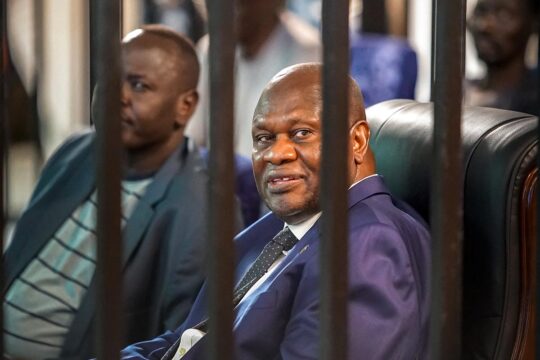Sri Lanka Tuesday threatened to pull out of the UN Human Rights Council if it pursued war crimes claims allegedly committed by government forces during a bloody war with Tamil Tiger separatists.
The country's president Gotabaya Rajapaksa -- the top defence official when the rebels were defeated in May 2009 under his brother, former president Mahinda Rajapaksa -- issued the warning at the 11th anniversary of the end of the 37-year conflict.
In a brief but emotional speech during the commemoration at a war memorial in the capital Colombo that was slimmed-down due to the coronavirus pandemic, Rajapaksa said it was his "national duty" to protect troops.
"If any international body or organisation continuously targets our country and our war heroes using baseless allegations, I will also not hesitate to withdraw Sri Lanka from such bodies or organisations," Rajapaksa said, switching to English during his speech in Sinhala.
Rajapaksa, a retired army lieutenant colonel, did not single out the United Nations, but his remarks were widely viewed as aimed at the Human Rights Council.
"Even leaders of powerful countries have emphatically stated that they will not allow any action against their war heroes," he added.
"I will not allow anyone or organisation to exert undue pressure on them and harass them."
The top rights body has called for accountability in Sri Lanka where some 100,000 people died during the war, a demand resisted by successive Rajapaksa administrations.
Before he won the November presidential election, Rajapaksa said he would not abide by the commitments of the administration in power at the time to probe war crimes claims.
After coming to power, he withdrew the island nation from a United Nations resolution calling for action over the alleged rights abuses.
The UN as well as rights bodies have accused Sri Lankan troops of killing up to 40,000 Tamil civilians in the final months of the war, a charge denied by successive governments.


